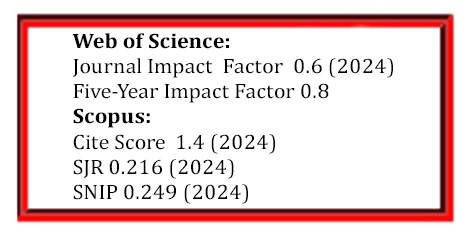Thermal Properties and Characterization of n-Decyl-Lauryl Alcohol/Expanded Graphite/Silicon Carbide Composite Phase Change Materials for Refrigerator Cold Energy Storage
DOI:
https://doi.org/10.5755/j02.ms.29758Keywords:
phase change materials, n-Decyl-Lauryl alcohol, nano-SiC, expanded graphite, cold energy storage, thermal propertiesAbstract
In this study, a kind of phase change materials (PCMs) with a low melting point (around 0 ℃) was prepared using n-decyl alcohol (DA) and lauryl alcohol (LA) as PCM, expanded graphite (EG) as supporting matrix. Nano silicon carbide (SiC) as a thermal conductivity promoter was added to modify the composite PCM. Expanded graphite with strong adsorption performance was used to not only prevent the leakage, but enhance the thermal conductivity. Leakage experiments showed that the maximum adsorption rate of DA-LA in composite PCM was 92 wt.%. The physical properties and chemical compatibility of composite PCM were studied, and the results showed that the raw materials were well absorbed and dispersed homogeneously into the porous structure of the EG, and they were only a physical bond with each other without chemical reaction. The melting and solidification temperature of composite PCM with the SiC mass ratio 3 wt.% was -0.85 ℃ and 1.08 ℃, and the latent heat of melting and solidification was 85.62 J/g and 74.94 J/g, respectively. the thermal conductivity of composite PCM with 9 wt.% SiC addition was 1.61, which was more than 4.19 times that of pure DA-LA. Thermogravimetric Analysis (TGA) experiment showed that composite PCM had outstanding thermal stability and durability. The present study confirms that this composite PCM is a potential candidate for cold energy storage in refrigerator applications.
Downloads
Published
Issue
Section
License
The copyrights for articles in this journal are retained by the author(s), with first publication rights granted to the journal. By virtue of their appearance in this open-access journal, articles are free to use with proper attribution in educational and other non-commercial settings.



